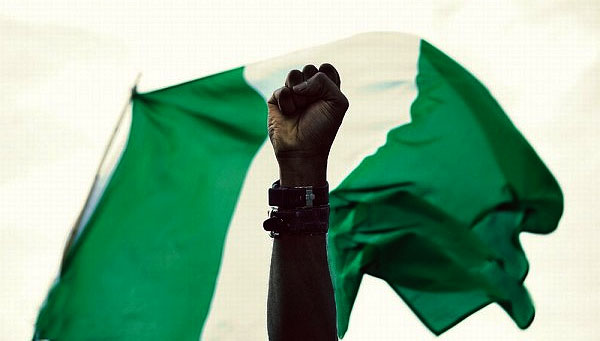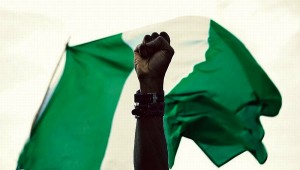Fifty-three years ago, on October 1, Nigeria became an independent nation. Many Nigerians are outspoken about the fact that the country’s growth has been stunted by various problems, and the journey to nationhood fraught with myriad setbacks. Even so, in the midst of our distressing challenges, many Nigerians still answered “yes” to the question, “Is it possible to find anything to love about Nigeria?”, and their responses were varied:
“Our culture, from our food to our values; diverse and unique” ~ Orighoye
“Here, you can call someone to live with you! Aunties and uncles abundant…so, you hardly worry about baby sitters” ~ Bimbo
“Our cultural and moral values” ~ Danielle
“Our people are the most confident black people on earth” ~ Patrick
“Our resilience” ~ Gbubemi
The resilience of Nigerians is indeed commendable, though it may not always be a good thing, as PR practitioner, Henrietta points out, “It’s so crazy and illogical how resilient and enterprising we are. We don’t sit on our hands crying when the roads are bad, salaries are unpaid, and electricity is epileptic. The average Nigerian provides the basic amenities for himself: water, electricity, roads and security! However, this same Nigerian doesn’t bother calling out corrupt government officials; at least not seriously in the ‘stand up for your right’ kind of way.”
Nonetheless, it is the fun-loving nature of Nigerians that is admired by many, and this is a trait of which the majority has refused to be robbed.
When asked what he loved most about Nigeria, Oz, a medical doctor currently studying in the United Kingdom, answered, “Off the top of my head I’d have to say, it’s the fact that despite our “distressing challenges” we are still the most life-loving people you’ll ever find.”
Lagos based nutrition and wellness consultant, Iwo, agrees, “We are happy people…always looking for something funny in the midst of the most annoying or frustrating situations.”
In fact, some believe it’s the people who make the country. Ola, a driver working in Abuja, says, “It’s the people that are keeping this country together. Bad as e bad, they still hope for something better tomorrow.”
And for many, “something better” is not an empty dream based on sheer optimism. Nehi, a finance director and writer, says, “Nigeria is the resource-richest country in the world. We have bitumen, iron ore, aquamarine, limestone, oil, onyx, columbite, gold…I could go on. My dad used to go mining, and he would find white people who told him if their country had half Nigeria’s natural wealth, America would be second place.”
Some Nigerians believe that the country is a great place for businesses to succeed, in spite of, and perhaps because of, its many shortcomings. According to Ada, lawyer and legislator, Enugu West Senatorial District, “Nigeria is the place you can make it easiest. If your hustles ‘knock’ in other countries, who says it’s the end? Come to Nigeria.” Abimbola, a management consultant, concurs, “There are too many “bad” systems in Nigeria, so it’s easy to make ONE work and make money from it.”
Naturally, cuisine is part of the Nigerian culture that is still cherished in the country today. Having concluded on the resilience of Nigerians, Henrietta adds, “To answer your question actually, the one thing I really love about Nigeria is the food. Seriously.”
Abimbola, who is also a doctoral student in the UK, has even more to love Nigeria for in this regard. “Here, on a whim you can get hot moin-moin with egg and other stuff. You can buy snails, green garden eggs, ogi, and soft, close-to-rotting plantain cheaply, cook and eat as you like. In the UK, it’s probably not “organic” and you’ve got to think about it before you buy such. They are not as reasonably priced. Here, you can live a middle class lifestyle on equivalent low wages if in US or UK.”
Uzor, a US-based medical doctor, answers straight from the heart. “The food… Yes, definitely the food! Also the music, fabrics, and basically the fact that Nigeria is home, and I can be myself there and not carry the label of being ‘black’.”
And alas, that is arguably the foremost reason most Nigerians are conscious of, and understandably so. Nigeria is home and its people have that freedom. “The first thing I thought of personally was that no matter what, Nigeria is home and I’m free to belong here,” says Mouzayian, who recently returned to Nigeria after studying in the UK for five years. “Maybe I feel more inclined to this because I have been away and experienced being an alien in another country.”
However, she is not alone. Bimbo says, “We are not second or third-rate citizens here! Also, my son does not feel inferior.”
“We have press freedom, religious freedom, freedom of expression,” Oghenero, a banker and photographer working out of Lagos elaborates. Edose, a South Africa-based dentist who lists Nigerian fashion as one of her favourite things, agrees, “Discrimination and racial concerns are not issues in Nigeria.” She also mentions an important point, echoed by many others. “The proximity of family and friends – loneliness isn’t such an issue.” Abimbola takes this from another angle. “In Nigeria, it’s difficult to be really ‘broke’; someone will easily ‘raise’ you,” she declares.
Ultimately, the freedom that the homeland affords is invaluable. John, a painter, hasn’t much time to think long about the question. He looks up from his work and answers simply, “It is my country. I am free.”


